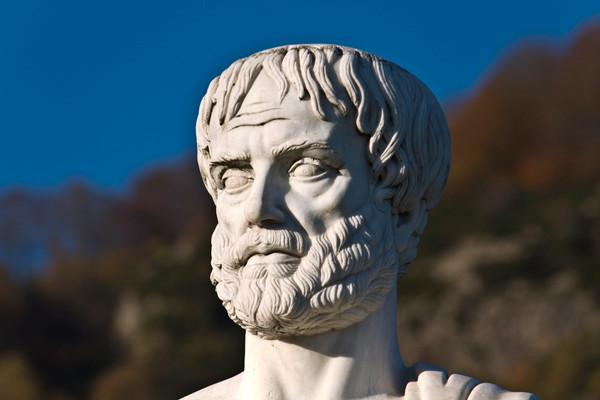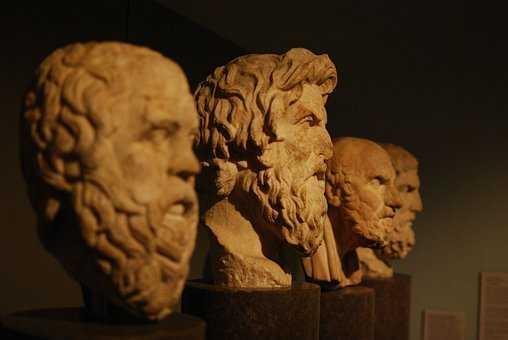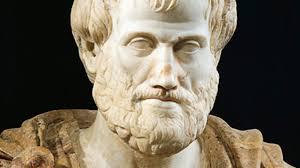What is Eudaimonia? Aristotle and Eudaimonic Well-Being
Curated from: positivepsychology.com
Ideas, facts & insights covering these topics:
10 ideas
·26.1K reads
20
Explore the World's Best Ideas
Join today and uncover 100+ curated journeys from 50+ topics. Unlock access to our mobile app with extensive features.
Defining Eudaimonia
Eudaimonia is a term which comes from Aristotle’s work called ‘Nicomachean Ethics’ and means individual well-being and happiness. It combines the prefix eu (meaning good) and daimon (spirit).
Socrates also delved in goodness and the virtues of knowledge leading us to achieve ultimate good.
1.02K
4.75K reads
Plato And Eudaimonism
- Plato believed that because we feel unhappy internally when we do something wrong, eudaimonia is the highest feeling of moral thought and behaviour where there is real happiness from within. Happiness, according to him, was about living in the pursuit of various virtues, central to flourishing.
- Plato never mentioned the term eudaimonia, but his writings on the concept of courage, justice, wisdom and moderation point towards the same domain of wellbeing.
891
3.17K reads
Aristotle And Eudaimonism
Aristotle in his many works has provided numerous interpretations of eudaimonia, explaining it as something reflecting the pursuit of virtue, excellence and the best within us. According to him, eudaimonia is a rational activity aimed at the pursuit of what is worthwhile in life.
Having an intention to be virtuous was an important factor for eudaimonia.
863
2.45K reads
“…Some identify happiness with virtue, some with practical wisdom, others with a kind of philosophic wisdom, others with these, or one of these, accompanied by pleasure or not without pleasure; while others include also external prosperity…it is not probable that…these should be entirely mistaken, but rather that they should be right in at least some one respect or even in most respects.”
ARISTOTLE
872
3.54K reads
A Sinful Or Virtuous Life
A life of satisfying one’s appetites, like material wealth, lust, power is a life suitable to beasts and is a laughable way to live.
A rational life with empathy, virtuosity and courage is the pursuit of eudaimonia in an everyday setting.
Though fate or luck does play a role in our long-term happiness, it by no mean hinders our quest for individual self-realization, with adverse situations and circumstances performing the role of a catalyst, not a hindrance.
936
2.28K reads
Subjective Well Being and Psychological Well Being
Subjective Well Being (SWB) and Psychological Well Being (PWB) are two modern equivalents of the psychological research on Eudaimonia, for psychologists and behavioural scientists studying the definition, measurement, distinctiveness and relation with other happiness and wellbeing concepts.
810
2.08K reads
Eudaimonic Well-being (EWB)
It is defined in the modern context as: “quality of life derived from the development of a person’s best potentials and their application in the fulfillment of personally expressive, self-concordant goals." (Sheldon, 2002; Waterman, 1990; 2008)
EWB takes into account self-realization (knowing oneself), developing our self-knowledge and using these potentials to fulfil one’s life goals.
883
1.75K reads
How To Achieve Eudaimonia
- Know what life goals you have, what you strive for, your core beliefs and drivers of life.
- Focus your capabilities and skills towards the attainment of the goals.
- Developing your best potentials driven by your inner desire to reach the pinnacle of your domain.
- Get engaged in your activities, perform the required actions and get active in your pursuit.
- Express your goals, desires, progress and feelings to others, getting feedback and support.
1.16K
2.17K reads
Hedonic Well-Being
Hedonic pleasures like consumerism or gluttony are the more visible, accessible and immediate ways to attain an instant jolt of happiness, however temporary.
While eudaimonic well being is associated with authenticity, excellence, meaning, and virtuous living, hedonic well being is more about the absence of distress, comfort, enjoyment and pleasure.
882
1.8K reads
Implementing psychological well being
Eudaimonic activities that can be practically pursued:
- Seeking to pursue excellence in one’s life.
- Following one’s beliefs.
- Using one’s core competencies.
- Learning or gaining insight into something.
902
2.11K reads
IDEAS CURATED BY
SeaElEl 's ideas are part of this journey:
Learn more about personaldevelopment with this collection
Effective note-taking techniques
Test-taking strategies
How to create a study schedule
Related collections
Similar ideas
4 ideas
What Is Eudaimonia?
psychologytoday.com
7 ideas
Do You Know The Meaning of The Good Life?
thoughtco.com
Read & Learn
20x Faster
without
deepstash
with
deepstash
with
deepstash
Personalized microlearning
—
100+ Learning Journeys
—
Access to 200,000+ ideas
—
Access to the mobile app
—
Unlimited idea saving
—
—
Unlimited history
—
—
Unlimited listening to ideas
—
—
Downloading & offline access
—
—
Supercharge your mind with one idea per day
Enter your email and spend 1 minute every day to learn something new.
I agree to receive email updates


